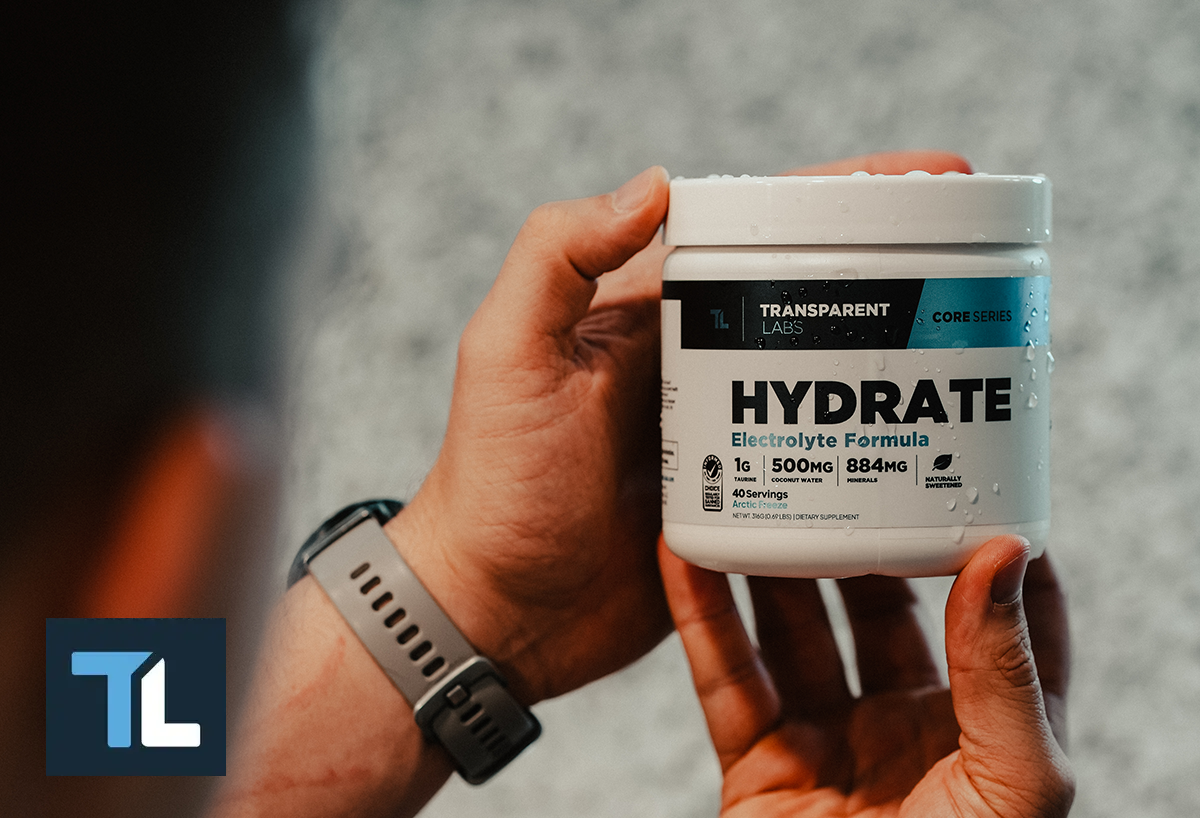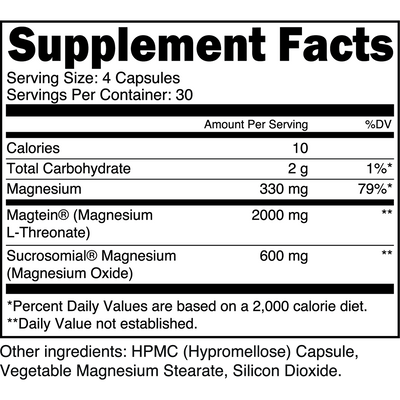How Long Does it Take to Rehydrate Your Body? (Science Backed)

There's a fine balance between water loss and gain for maintaining normal fluid balance.
If you lose more body water at a rate greater than you can replace it, dehydration sets in, leading to various symptoms, some of which can be severe.
Anyone can experience dehydration, but it's especially common among athletes, older adults, and people with certain chronic conditions or who take certain medications.
Thus, just as important as it is to stay hydrated to function properly, it's also good to know how to properly rehydrate the body if you or someone you know becomes dehydrated.
This article breaks down everything you need to know about dehydration and the rehydration process, including factors influencing hydration speed.
Understanding Dehydration
Dehydration occurs when you lose more water than you take in, resulting in a loss of total body water.
You can lose water through the skin, lungs, digestive tract, and kidneys, and depending on where you lose water, it's easier to understand the cause of dehydration.
For example, water loss from the skin — as sweat — can occur from heat, exercise, burns, and severe skin diseases.
Water loss from the kidneys can occur from certain medical conditions like kidney disease and high blood sugar or the use of medications like diuretics. And, water loss from the digestive tract can occur from vomiting, diarrhea, or the use of laxatives.
Anyone can experience dehydration, but certain people are at greater risk, including:
-
Infants and children due to low body weight and from vomiting and diarrhea.
-
Older adults due to impaired thirst mechanisms and higher prevalence of conditions and use of medications that increase dehydration risk.
-
People with chronic illnesses like diabetes, cystic fibrosis, and kidney problems.
-
Athletes due to increased water loss through sweat.
Dehydration can cause a wide assortment of symptoms, which vary based on severity.
Mild to moderate dehydration symptoms can include:
-
increased thirst
-
dry skin or lips
-
dark urine or decreased urine output
-
headaches
Signs of severe dehydration can include:
-
lightheadedness
-
dizziness
-
heart palpitations
-
fainting
-
increased breathing rate
-
decrease in body temperature
There exists no gold standard test for dehydration, but medical providers often use certain lab tests.

The Hydration Process
Thirst is the body's instinctive signal to promote fluid intake and maintain or restore fluid balance, except in older adults who may have an impaired thirst mechanism. Ensuring adequate hydration requires not just drinking enough fluids but also balancing electrolytes like sodium and potassium, especially in specific groups such as athletes, to effectively replace fluid losses.
After you drink water, it rapidly enters the stomach and then moves to the small intestine, where it is absorbed into the bloodstream. This process of rehydration with water can be relatively quick, beginning to enter the blood within five minutes of ingestion. Complete absorption in the small intestine usually occurs within 75 minutes to two hours (2).
However, the rate of water absorption depends on various factors, including the volume consumed, its temperature, the presence of other nutrients, and osmolality, which refers to the concentration of dissolved particles in the fluid. Additionally, individual factors also influence hydration, which will be explored later.
Methods to Rehydrate
For most people who are mildly dehydrated, water is the most effective and preferred method for hydration, including for exercise that lasts 60 to 90 minutes.
However, for prolonged, intense exercise, sports drinks are generally preferred to support hydration but also to supply rapidly digesting carbohydrates for sustaining exercise performance (3).
To this point, kayakers who rehydrated with a sports drink instead of water during a kayaking exercise test became less dehydrated (4).
Most people also don't need electrolyte supplements or drink mixes since electrolytes can easily be replenished with normal dietary intake, but these supplements can be useful for people who train or work in hot environments or who are "salty sweaters."
Salty sweaters are those who lose more salt in their sweat than others. You may be a salty sweater if you notice white streaks (salt stains) on your clothes or hat during or after a workout or if your sweat tastes salty or sings your eyes.
Oral rehydration solutions can be effective for treating dehydration caused by vomiting or diarrhea.
While you can buy an oral rehydration solution, you can also make one at home.
Here's what you'll need:
-
34 ounces (1 liter) of water
-
6 teaspoons of sugar
-
1/2 teaspoon of salt
Combine these ingredients in a large pot or bowl and stir until the sugar and salt dissolve.
In some instances, dehydration can be so severe that intravenous (IV) hydration is necessary. With this method, IV fluids are injected into a person's veins through an IV tube. The fluid is usually a mixture of salt and water (saline) that can also contain carbohydrates and electrolytes to increase hydration rate and replenish lost electrolytes.
Factors Influencing Hydration Speed
Generally, within five minutes of drinking, water starts to enter your bloodstream where it circulates throughout your body to cells. It then takes around 75 minutes to two hours for all the water you consume to be completely absorbed into your blood from the intestines.
Of course, there are various factors influencing the speed at which you digest and absorb water, affecting rehydration rates.
These factors include the volume and temperature of the water consumed, the presence of electrolytes or carbohydrates, and individual factors related to dehydration severity, age, and any issues with digestive functioning.
Sports drinks — which usually contain electrolytes and carbohydrates — increase water absorption in the small intestine much faster than plain water.
This is primarily because glucose or carbohydrates stimulate sodium and water transport across the small intestine for absorption through what is known as the sodium-glucose cotransport system.
It doesn't take much sodium or glucose to enhance rehydration. In fact, solutions with a lower concentration of salt and sugar than the blood, tend to be the most effective for promoting hydration (5).
Other nutrient transporters such as those for amino acids also contribute to water transport and absorption in the small intestine. To this point, branched-chain amino acid (BCAA) supplements can support hydration, especially around workouts, similar to sports drinks (6).
Conversely, certain dietary factors can have a dehydrating effect — with alcohol being a big one since it acts as a diuretic, causing your body to expel water as it tries to metabolize and eliminate the alcohol.
Caffeine can also act a an diuretic but only in much larger amounts than people assume — usually above six milligrams per kilogram (7).
This amount equates to more than 400 mg — about 4-5 cups of coffee — for a 150-pound person.
Practical Tips to Staying Hydrated
Despite what popular media outlets claim, dehydration isn't as common as most people think, except in older adults where it affects up to 28% (1).
Still, it's likely that many people don't maintain optimal hydration.
There is no formal recommendation regarding how much water you should drink daily as your needs will be specific to where you live, how active you are, what you eat, your age, and your body size and composition.
But, the National Academy of Medicine established the following general recommendations for daily water intake (8):
-
Women: 91 ounces (2.7 liters) of total water per day
-
Men: 125 ounces (3.7 liters) of total water per day
Many people don't realize that these guidelines include water from all beverages and foods — not water alone.
This means you can meet your hydration needs from foods rich in water such as fruits and vegetables — especially watermelon, citrus fruits, peaches, cucumbers, and tomatoes.
Other foods like lean meats, jello, and yogurt also contribute to hydration.
Additionally, any nonalcoholic beverage will count towards your water goal, including caffeinated beverages like coffee and tea when consumed in moderation.
Milk specifically is a great for rehydration, with several studies indicating it's more effective than drinking water to treat dehydration associated with exercise (9).
Some people utilize hyperhydration techniques to prevent dehydration or reduce the severity of dehydration. They do this by drinking lots of water that contains an agent that "binds" water within the body. One common agent is glycerol.
However, it's possible to become over hydrated in which the sodium in your blood becomes diluted causing a condition called hyponatremia. This is especially true during exercise when your body's compensatory methods for maintaining normal hydration are lessened (10).

Conclusion
Understanding how long it takes to rehydrate and recognizing the factors that affect hydration are essential for maintaining optimal health.
Rehydration can occur quickly, with water starting to enter the bloodstream within five minutes of ingestion and typically being fully absorbed within 75 to 120 minutes. However, the rate of hydration varies based on factors like the temperature and volume of the water, the presence of electrolytes or carbohydrates, and individual physiological differences.
As dehydration can impact anyone, particularly athletes, older adults, and those with certain health conditions, it's crucial to listen to your body's thirst signals and hydrate appropriately.
Staying informed about hydration processes and actively managing fluid intake can help ensure that you maintain a healthy fluid balance, supporting overall health and well-being.
FAQs
How Long Does It Take to Hydrate Your Body?
Water can enter your bloodstream within five minutes of drinking. Still, there are various factors that determine how long it takes to hydrate your body, including dehydration severity, health status, and rehydration method, with solutions that contain carbohydrates and sodium being more effective than plain water.
How Long Does It Take to Rehydrate After Alcohol Consumption?
Alcohol is a diuretic, meaning it expels fluid from your body. If you wake up hungover, drinking plenty of water can help rehydrate your body within just a few minutes since this is all the time it takes for water to enter your bloodstream. If you're severely hungover, oral rehydration solutions are a better choice over water.
How Much Water Do You Need to Drink to Rehydrate?
The amount of water you need to drink to rehydrate depends on the severity of the dehydration, among many other individual factors, but it's wise to drink as much water as you need until you don't feel thirsty and the regularly throughout the day.









